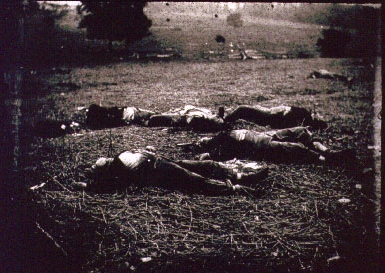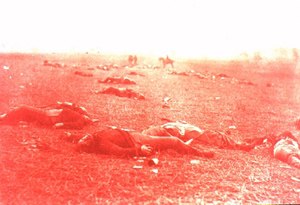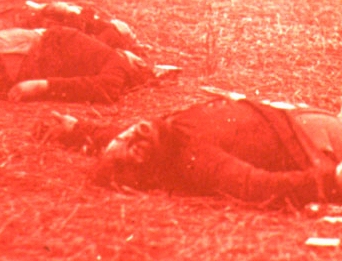

These practical necessities led to a photographic record of the Civil War that emphasized preparations for and aftereffects of battles, instead of the actual battles themselves. There are no photographs of Civil War battles, but there are many photos of soldiers and officers before battles, of dead corpses on the fields after battles, and of wounded soldiers in hospitals. The state of photographic technology at the time of the Civil War thus determined how we would remember this war, because only certain kinds of images would be carried through our history as visual traces of the war.
Walt Whitman and Emily Dickinson both saw the Brady photographs (or engravings of them) and wrote poetry that also captured the sobering aftereffects of butchery that took place on the battlefields. It is worth considering whether their war poetry was influenced by the Brady photographs. Read the following poems by Whitman and Dickinson in juxtaposition to two well-known Brady photos of the Civil War dead. How do the poems and the photographs illuminate each other?
|
Walt Whitman Look down
fair moon and (1865) |
 |
![]()
 |
My Portion is Defeat--today-- Defeat--a somewhat slower-- means-- More arduous than Balls-- 'Tis populous with Bone and And Men too straight to stoop again, And piles of solid Moan-- And Chips of Blank--in Boyish Eyes-- And scraps of Prayer-- And Death's surprise, Stamped visible--in Stone-- There's somewhat prouder, (c. 1862) |
![]()
| Tis
populous with Bone and stain-- And Men too straight to stoop again, And piles of solid Moan-- And Chips of Blank--in Boyish Eyes-- And scraps of Prayer-- And Death's surprise, Stamped visible--in Stone-- |
 |